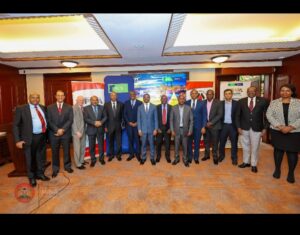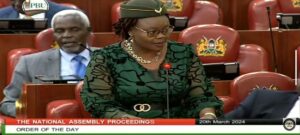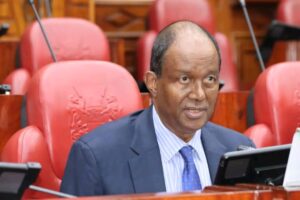The Principal Secretary State department of Internal Security and National Administration joined the Petroleum Institute of East Africa today to discuss on how to combat illicit Petroleum trade.
The auspacious occassion which was graced by chief Guest Dr. Raymond Omollo Principal Secretary Ministry of Interior state department for Security and National Government also saw attendance of Other stakeholdes including; EPRA, KCB and other invited guests.
The main theme for the meeting was
Combatting Illicit petroleum trade in Kenya
As one of Economic catalyst on Bottom up approach transformative Agenda.
Lubricants are also Counterfeited, leading to engine Knock down and hence accident. Common people are sold the counterfeit Lubricants from street dealers and not able to verify the authenticity of the product. LPG illegal refilling Gas is also among products counterfeited.
“The theme of today’s briefing ‘Combating Illicit Trade in the Petroleum Sector as a Key Catalyst to the Government’s Bottom-Up
Economic Transformation Agenda’ serves as a beacon to giude our efforts towards a safer, more prosperous future. It encapsulates the essence of our vision as government of being able to provide a firm footing for legitimate trade and movement of petroleum and its products, not restrain it.
I stand before you today to address this pressing issue of illicit trade
in petroleum products that affects not only the petroleum sector but the very fabric of our national security. It usually goes unsaid but access to reliable, quality petroleum products is deeply intertwined with national security as it influences security operations both in terms of fuel for vehicles and aircrafts as well as power for police stations and communication systems, especially in far flung and hard to reach areas not yet connected to the national grid.” Said Dr Raymond Omollo PS state department Internal security and National Administration.
There has been alot of work going on in the Petroleum Industry in terms of growth and regulations. Latest incident of gas explosion at Embakasi being a challenge. It is our responsibility for the safety of the country. Hence there is need for self regulation and sustain the gains made in the Industry.
The regulator must do his work to avoid insecurity in the sector.
The illicit trade of Petroleum product affects the security operations. Fuel for vehicles and Planes. Transport is also affected and storage and refilling facilities.
Illegal Petroleum facilities along our Highways are also a security threat.
Accomplices of this are even the NGAOs EPRA and citizens. There is need of intelligent led agencies and tighten the Measures and prosecution of the players involved.
He further added that, there is need of public Sensitization, officers trained and Members of Parliament made aware on issue of illegal Petroleum and Gas trade..
Multifacet approach is also required involving collaboration between Industry players, regulators, Government agencies and Public.
Lubricants are also Counterfeited, leading to engine Knock down and hence accident. Common people are sold the counterfeit Lubricants from street dealers and not able to verify the authenticity of the product. LPG illegal refilling gas is also among products counterfeited.












